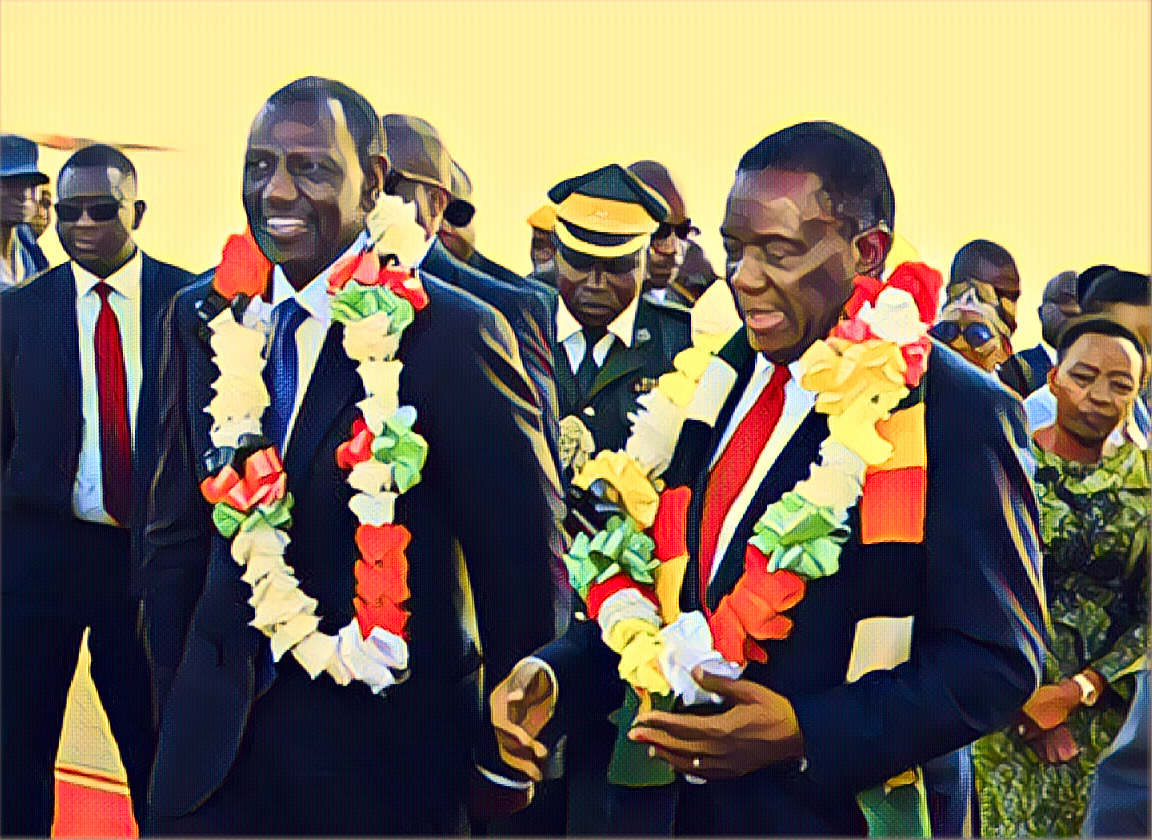Kenyan President William Ruto recently lauded Zimbabwe’s dedication to economic change and voiced support for the country’s new currency, the ZiG. President Ruto spoke about Zimbabwe’s economic policies and prospects for socioeconomic growth during the 64th Zimbabwe International Trade Fair (ZITF) in Bulawayo, where he was present during his visit to Zimbabwe.
President Ruto praised Zimbabwe’s strong policies and the government’s deliberate efforts to promote economic reform and recovery. He emphasized that the adoption of the ZiG currency was a critical step in bringing Zimbabwe’s economy back to life. John Mushayavanhu, the governor of the Reserve Bank of Zimbabwe (RBZ), introduced the new currency, which will be distributed on Tuesday, April 30, 2024. It is backed by gold and other asset reserves.
“During his speech at the ZITF, President Ruto stated that the introduction of ZiG symbolizes a radical renewal of Zimbabwe’s monetary policy and will considerably contribute to the country’s economic rebirth.” He underlined that the growing potential in every area of the economy demonstrate that the changes occurring in Zimbabwe are not merely theoretical.
In addition, President Ruto emphasized the significance of the ZITF’s theme, “Entrepreneurship: A Catalyst for Industrialization and Trade,” which is in line with Zimbabwe’s goal of utilizing its vast potential to promote trade and industry. He asked investors to take advantage of the great commercial prospects presented by Zimbabwe’s continuing reforms, particularly those pertaining to trade and investment.
Apart from the monetary policy, President Ruto commended Zimbabwe’s policy of agricultural rehabilitation, emphasizing the availability of markets, technology, and inputs. Through the development of wealth and jobs, he said that this program will sow the seeds of transformation that will improve livelihoods throughout the nation, especially in rural areas.
President Ruto stated that another area in which Zimbabwe has achieved significant strides is infrastructure development. In order to increase productivity, encourage commerce, and draw in investment, he emphasized advancements in the energy, transportation, and ICT sectors that have improved local and regional connectivity. The president also mentioned how vital it is to strengthen regional integration to consider the strategic significance of the two Trans-African highways that go through Zimbabwe: the Beira-Lobito and the Cape Town to Cairo routes.
In his remarks, President Ruto emphasized how important innovation is to the restructuring of the economy. He made the argument that innovation boosts productivity in every industry, creates new inventions, and changes current technologies. According to his explanation, “innovation enables technologies and processes to achieve more in terms of volume and variety, making it easier to meet demand and provide choice.”
Following his trip to Zimbabwe, President Ruto returned to Nairobi, where he addressed the challenges caused by the recent flooding in Eastern Africa. Over 35 people have died in Kenya this past week as a result of the floods, which have severely damaged several areas of the country, including the capital.


